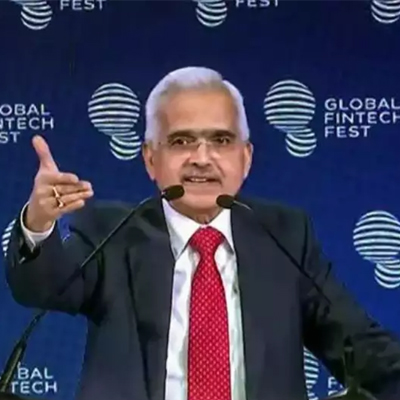Linking Science to Everyday Lives, Impact on Society of Modern Technologies

Dr Archana Sharma, Principal at Scientist, CERN
The 21st century is witnessing an unprecedented era where the threads of scientific progress intricately weave themselves into the fabric of our daily lives. No longer confined to the realms of laboratories and academic discourse, scientific and technological advancements have become an indispensable part of our societal evolution.
The symbiotic relationship between life science and our daily routines is more prominent than ever in intellectual empowerment and educational augmentation discussions. Scientific advancements have ushered in an era where information is found not only in the hallowed halls of academia but permeates everyday life. Educational platforms harness the power of technology to deliver knowledge ubiquitously, transcending traditional boundaries and democratising access to information. All this has itself been possible given the rapid development over the last three decades of the world wide web invented at CERN. This democratisation fosters intellectual empowerment, enabling individuals to develop a more comprehensive understanding of scientific principles, thereby building a society that is not only technologically adept but intellectually enriched.
"Assimilating science into daily life empowers individuals and steers society towards technological adeptness and intellectual enrichment. The transformative potential hinges on conscientious integration, fostering ethical progress and sustainability in the symbiotic relationship with life science."
Pervasive Technological Integration
The seamless assimilation of scientific progress into everyday life is unmistakably evident in the omnipresence of technology. Handheld devices and interconnected smart home systems stand as physical evidence of this integration, representing the meticulous interplay between scientific research and practical applications.
Beyond personal gadgets and smart homes, the convergence of scientific knowledge with technology has permeated industries, transforming sectors such as artificial intelligence, quantum computing, and biotechnology. This fusion has revolutionised operations across all sectors, from manufacturing and finance to healthcare and communications.
Together, this integration has reshaped the landscape of work and leisure. Automation and artificial intelligence have redefined professional roles, emphasising the importance of adaptability and technological literacy. Simultaneously, augmented reality, virtual reality, and immersive technologies have expanded leisure experiences, transcending the confines of the tangible world.
The multifaceted assimilation of technology into daily life enhances convenience and efficiency while accentuating the need for continuous scientific inquiry. The symbiotic relationship between scientific exploration and technological integration propels humanity towards new frontiers, defining our present reality and offering glimpses of intricate possibilities on the horizon and beyond.
Impact on Communication Dynamics
One of the most revolutionary effects of linking science to everyday life can be witnessed in the sphere of communication. The advent of the internet, enabled by breakthroughs in information technology and telecommunications, has reformed how we connect and disseminate information. The global interconnected network facilitated by scientific advancements has obliterated geographical barriers, fostering a new era of instantaneous communication and collaboration.
Health and Well-being Revolution
Scientific strides in the field of medicine have catalysed a revolution in healthcare, profoundly impacting individual and societal well-being. Integrating science into healthcare has elevated the quality and longevity of human life, from the development of life-saving pharmaceuticals to the precision of minimally invasive surgical procedures. Moreover, wearable technologies and health-monitoring devices exemplify how science has seamlessly interwoven with everyday life, enabling individuals to participate in their well-being actively.
Sustainable Living through Scientific Innovation
The importance of sustainable living is at the forefront of contemporary discourse, with life science assuming an indispensable role in steering this transformative paradigm shift. Innovations in renewable energy, waste management, and sustainable agriculture propose pragmatic solutions to the difficulties posed by climate change. These advancements, encapsulating breakthroughs in life sciences such as biotechnology, genomics, and ecological research, underscore the potential to fundamentally reshape our environmental practices.
At the same time, strides in waste management, embracing nuanced biological recycling processes and ecological restoration models, aspire to alleviate the harmful impacts of burgeoning waste streams on the environment. Within sustainable agriculture, life science innovation encompasses precision breeding techniques, agroecological methodologies, and genetic modifications, all directed towards fortifying crop resilience. This amalgamation of life science progress addresses the challenges related to climate change and heralds a nascent epoch of enhanced food security and judicious resource utilisation.
As society adopts these cutting-edge life science advancements incrementally, the prospect of a sustainable future becomes progressively discernible. The inter-dependency between life science innovation and sustainable living highlights the potential for transformative change, mitigating the environmental footprint of human activities and fostering an equitable coexistence between humanity and the planetary ecosystem. This trajectory towards a sustainable future is pivotal for sustained life science inquiry, continual technological refinement, and a collective commitment to integrate these advancements seamlessly into the fabric of societal practices.
Ethical Considerations and Social Dynamics
The integration of science into everyday life necessitates a reflection on the ethical implications and societal dynamics that accompany these advancements. Issues such as data privacy, the digital divide, and the ethical use of artificial intelligence demand careful consideration. Navigating these complex terrains with ethical acumen ensures that the benefits of scientific integration are equitably distributed and potential pitfalls are mitigated.
Driven by the transformative potential of life science, society stands on the brink of an era where progress is not merely measured in technological advancements but is intrinsically woven with ethical understanding and a commitment to sustainable coexistence. As we navigate this dynamic interplay between life science and societal evolution, it is essential we don't lose sight of the primary objective of this symbiotic relationship: to forge a collective journey toward a future where the threads of knowledge, ethics, and sustainability seamlessly converge, creating a tapestry of progress that elevates humanity to new heights.
In conclusion, I am hopeful that scientific research further accelerates pace, is supported by governments worldwide, and leads to a peaceful and harmonious world and this optimism stands on the shoulders of science and technology.
The Journey into Industry
Dr. Archana Sharma, honoured as the Pravasi Bharatiya Awardee 2023 by the Government of India and the Bharat Gaurav at the British Parliament, is a distinguished figure in the field of physics and international scientific collaboration. With a career spanning over three decades, she has made remarkable contributions as the Head of Relations with International Organizations and Principal Scientist at the renowned CERN Laboratory in Geneva, Switzerland. Dr. Sharma's expertise extends across various domains, from her pioneering work in designing and operating large-scale gaseous detectors for radiation to her influential role in scientific management.
An alumnus of Banaras Hindu University and the University of Delhi, Dr. Sharma holds a Ph.D. in Physics and a D.Sc. from the University of Geneva. She also earned an executive MBA degree from the International University Geneva, showcasing her commitment to both academic excellence and professional leadership. Dr. Sharma's extensive list of accolades includes being an IEEE Senior and a nominee for the Spokesperson term (2020-22) of the CMS experiment, highlighting her exceptional standing in the global scientific community.
In addition to her groundbreaking research, Dr. Sharma is a passionate advocate for diversity in science and technology, actively mentoring young students, especially girls, in STEM fields. She is also a prolific author, with over 1200 publications and three popular science books to her credit. Dr. Archana Sharma's unwavering dedication to advancing scientific knowledge and fostering international collaboration continues to inspire and shape the future of physics and beyond.
.jpg)
.jpg)
.jpg)
.jpg)



